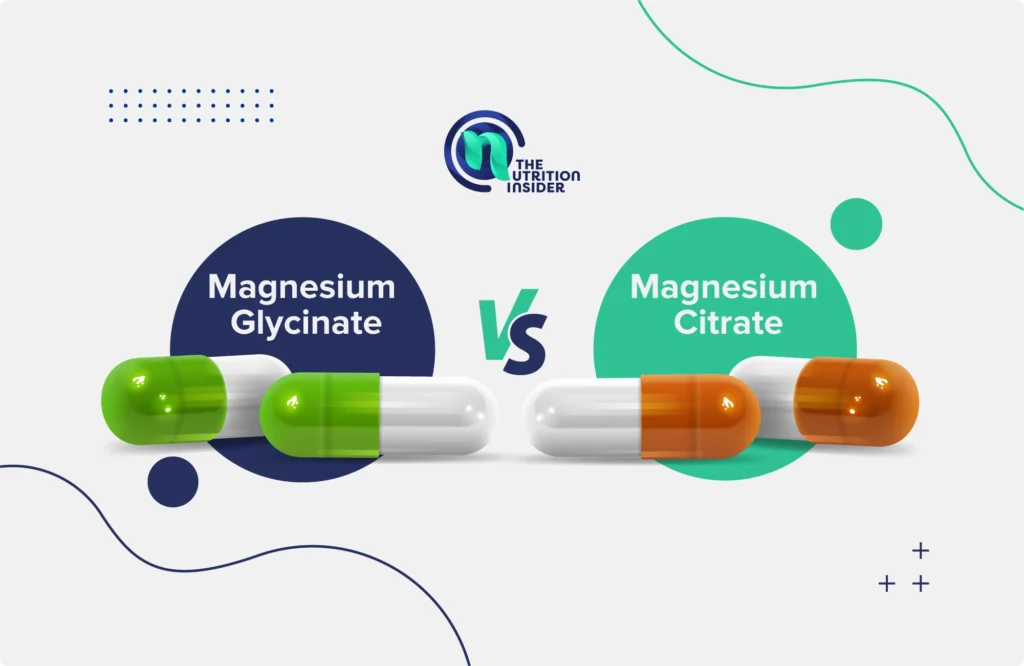Introduction to Magnesium Glycinate vs. Citrate
Magnesium is often dubbed the unsung hero of minerals. It plays a vital role in countless bodily functions, from muscle contraction to nerve signaling and energy production. Yet, many people overlook its importance until they experience symptoms like fatigue, Magnesium Glycinate vs. Citrate muscle cramps, or anxiety. With various forms available on the market today with unique benefits, it can be challenging to determine which supplement is right for you.
Two popular options that frequently come up are magnesium glycinate and magnesium citrate. Both have loyal followers and distinct advantages, but how do you choose between them? This article will delve into these two forms of magnesium supplements, exploring their differences and helping you decide which one may best suit your needs. Let’s uncover what distinguishes magnesium glycinate from citrate and why understanding this could change your wellness game!
Understanding Magnesium Glycinate and Citrate
Magnesium is essential for numerous bodily functions. It plays a key role in nerve function, muscle contraction, and energy production. Magnesium glycinate and citrate are two popular forms of magnesium supplements.
Magnesium glycinate combines magnesium with glycine, an amino acid known for its calming effects. This form promotes better absorption and minimizes digestive discomfort. Many users appreciate its potential to support sleep quality and reduce anxiety levels.
On the other hand, magnesium citrate combines magnesium and citric acid. It’s often favored for its laxative properties, which benefit those with constipation. Additionally, this variant may enhance hydration by drawing water into the intestines.
Both forms have unique characteristics that can cater to different needs based on individual health goals or concerns.
Benefits of Magnesium Glycinate vs. Citrate

Magnesium glycinate stands out for its high bioavailability. This means your body can absorb it efficiently, making the most of every dose.
Many users find that magnesium glycinate helps promote relaxation and improve sleep quality. It may calm the nervous system, reducing anxiety levels.
Another significant benefit is its role in muscle function. Athletes often turn to this supplement to aid recovery post-exercise. It can help alleviate cramps and tension.
Additionally, magnesium glycinate supports digestive health. Unlike other forms, it’s less likely to cause gastrointestinal issues like diarrhea.
This form of magnesium also contributes to bone health by assisting in calcium absorption. Strong bones are vital as we age.
With these varied benefits, magnesium glycinate is a popular choice for many seeking overall wellness without unwanted side effects.
Benefits of Magnesium Citrate
Magnesium citrate is known for its excellent bioavailability, making it a popular choice among supplement users. This form of magnesium is easily absorbed by the body, allowing quick and effective results.
One significant benefit is its ability to promote digestive health. Many people find that magnesium citrate helps relieve occasional constipation. It is a gentle laxative that draws water into the intestines, aiding regular bowel movements.
Additionally, magnesium citrate may help reduce anxiety and improve sleep quality. Users often report feeling more relaxed after taking this supplement, making it an appealing option for those struggling with stress or insomnia.
Moreover, it’s beneficial for muscle function. Athletes frequently use magnesium citrate to prevent cramps and support recovery post-exercise. Combining these effects makes it a versatile choice for many health enthusiasts seeking overall well-being.
Side Effects and Risks

While magnesium supplements can offer numerous benefits, they also have potential side effects and risks. Both magnesium glycinate and citrate are generally well-tolerated, but individual reactions may vary.
Magnesium glycinate is often noted for its gentle effect on the digestive system. However, if taken in excessive amounts, some users might experience mild gastrointestinal discomfort or diarrhea.
On the other hand, magnesium citrate has a more substantial laxative effect. It’s commonly used to relieve constipation but can lead to cramping or loose stools for those not accustomed to it.
Always consult a healthcare professional before starting any supplement regimen. This is especially important for individuals with kidney issues or those taking medications that interact with magnesium levels in the body. Monitoring your intake helps ensure safety while reaping the desired health benefits.
Choosing the Right Form for You
Selecting the right magnesium supplement hinges on your individual needs and lifestyle. Magnesium glycinate might be your best bet for relaxation and better sleep. Its calming properties can help alleviate anxiety and promote restful nights.
On the other hand, magnesium citrate may suit you better if you’re focused on digestive health or a gentle laxative effect. It’s often recommended for those who experience constipation.
Please also consider any existing health conditions. Magnesium supplements can interact with certain medications or exacerbate specific issues, like kidney problems.
Think about convenience, too—citrate is generally available in liquid form, while glycinate usually comes in capsules or tablets. Your comfort with these forms could influence your choice significantly.
It’s always wise to consult with a healthcare professional before starting any new supplement regimen to ensure it’s specifically safe and effective.
Conclusion Magnesium Glycinate vs. Citrate
Choosing between magnesium glycinate and citrate depends on your specific health needs. Each form offers unique benefits that can cater to different lifestyles.
Magnesium glycinate is often favored for its calming properties, making it an excellent choice for stress or sleep issues. Its gentle nature on the stomach is another plus.
On the other hand, magnesium citrate stands out when supporting digestion. This could be your go-to option if you’re looking for a supplement that may help relieve constipation.
Consider what you’re hoping to achieve with supplementation. Your personal health goals will guide you toward the right choice.
Consulting with a healthcare professional can also provide clarity tailored to your situation. Being informed allows you to make decisions aligned with your wellness journey.
FAQs
Regarding magnesium supplements, you may have questions about the differences and benefits of various forms. Below are some frequently asked questions regarding magnesium, glycinate, and citrate.
What is the main difference between magnesium glycinate and citrate?
Magnesium glycinate combines magnesium and glycine, an amino acid that enhances absorption. Magnesium citrate, on the other hand, combines magnesium with citric acid. This makes it more bioavailable but can also have a laxative effect on some individuals.
Which form of magnesium is best for sleep?
Many people prefer magnesium glycinate for improving sleep quality due to its calming effects on the nervous system. The presence of glycine further contributes to promoting relaxation.
Can I take both magnesium glycinate and citrate together?
It’s generally advisable to consult with a healthcare professional before combining different forms of supplements. Doing so may increase the risk of side effects or alter their effectiveness.
Are there any dietary sources rich in these types of magnesium?
Yes! Foods like spinach, almonds, black beans, and whole grains are excellent sources of natural magnesium. While they don’t specifically contain glycinate or citrate forms directly, they provide essential minerals your body needs.
How do I know if I need a supplement at all?
If you’re experiencing symptoms such as muscle cramps, fatigue, or anxiety—consider discussing your symptoms with a healthcare provider who can recommend tests or dietary changes as needed.
Is one form more suitable for specific age groups?
While individual responses can vary widely based on health conditions or lifestyle factors rather than age alone, younger adults might tolerate higher doses better than older adults whose digestive systems might be sensitive to certain formulations like citrate, which has mild laxative properties.
Understanding these aspects will help clarify choices around supplementation tailored just for you!
Also read: 127.0.0.1:49342








One thought on “Magnesium Glycinate vs. Citrate Which is Better for You”